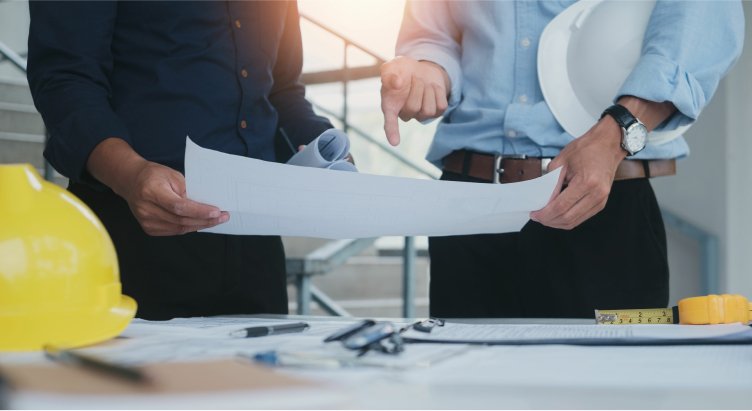
Introduction
Obtaining a builder license is a crucial step for anyone looking to pursue a career in the construction industry. It signifies that an individual has met the necessary qualifications and is authorized to undertake building projects. This article will provide an in-depth guide on the process for obtaining a builder license, covering the requirements, steps involved, and tips for success.
Understanding the Importance of a Builder License
Ensuring Quality and Safety
A builder license ensures that builders have the requisite knowledge and skills to construct buildings safely and to the required standards. This is crucial for protecting public safety and ensuring the quality of the built environment.
Legal Compliance
Holding a builder license is often a legal requirement for performing construction work. Operating without one can result in hefty fines and legal consequences, including the potential shutdown of a construction project.
Professional Credibility
A builder license enhances a builder’s credibility and reputation. It signals to clients and employers that the builder is competent, reliable, and committed to maintaining industry standards.
General Requirements for Obtaining a Builder License
Educational Background
Most jurisdictions require applicants to have a certain level of education. This often includes a high school diploma or equivalent, and sometimes further education in construction management or a related field.
Work Experience
Hands-on experience in the construction industry is typically a prerequisite. The amount of required experience can vary but generally ranges from 2 to 5 years.
Training Programs
Completing relevant training programs or apprenticeships can be beneficial. These programs provide practical skills and knowledge that are essential for passing the licensing exams.
Financial Stability
Some licensing boards require proof of financial stability, which may include providing credit reports or demonstrating sufficient financial resources to support business operations.
The Licensing Process
Step 1: Research State or Local Requirements
Licensing requirements can vary significantly by state or locality. It is essential to research the specific requirements in the area where you plan to work.
Step 2: Complete the Required Education and Training
Enroll in and complete any necessary educational programs or training courses. This may include attending community college, technical school, or university programs focused on construction.
Step 3: Gain Relevant Work Experience
Work under a licensed builder to gain the required practical experience. Document your work experience meticulously, as you will need to provide proof when applying for your license.
Step 4: Apply for the License
Submit an application to the appropriate licensing authority. This typically involves completing an application form and providing documentation of your education, work experience, and financial stability.
Step 5: Pass the Licensing Exam
Prepare for and pass the licensing exam. The exam tests knowledge of building codes, construction methods, safety regulations, and business practices. Study materials and practice exams are often available from the licensing board.
Step 6: Obtain Liability Insurance
Many jurisdictions require builders to have liability insurance before they can receive their license. This insurance protects both the builder and their clients in case of accidents or damages during construction.
Step 7: Pay the Licensing Fee
Pay the required licensing fee, which can vary depending on the location and type of license.
Step 8: Receive Your License
Once all requirements are met, you will receive your builder license. This allows you to legally operate as a builder in your jurisdiction.
Maintaining Your Builder License
Continuing Education
Many licensing boards require builders to complete continuing education courses to keep their knowledge and skills up to date. This ensures that builders remain informed about new building codes, technologies, and industry best practices.
License Renewal
Builder licenses typically need to be renewed periodically, often every one to three years. The renewal process may involve submitting proof of continuing education, paying a renewal fee, and passing a renewal exam.
Compliance with Regulations
Stay compliant with all relevant building codes and regulations. Non-compliance can result in penalties, fines, or even the revocation of your license.
Tips for Success in Obtaining a Builder License
Start Early
Begin accumulating the necessary education and work experience as early as possible. This will help you meet the requirements more easily and avoid delays in the licensing process.
Keep Detailed Records
Maintain detailed records of your education, training, and work experience. Accurate documentation is essential for a smooth application process.
Study Diligently for the Exam
Take the licensing exam seriously and prepare thoroughly. Use study guides, take practice exams, and consider enrolling in exam preparation courses if needed.
Network with Licensed Builders
Building relationships with licensed builders can provide valuable insights and mentorship. They can offer advice on navigating the licensing process and share their own experiences.
Stay Informed About Industry Changes
The construction industry is constantly evolving. Stay informed about changes in building codes, regulations, and industry trends to ensure you remain compliant and competitive.
Consider Specializations
Some jurisdictions offer specialized builder licenses for different types of construction work, such as residential, commercial, or industrial. Consider obtaining additional certifications or specializations to expand your expertise and marketability.